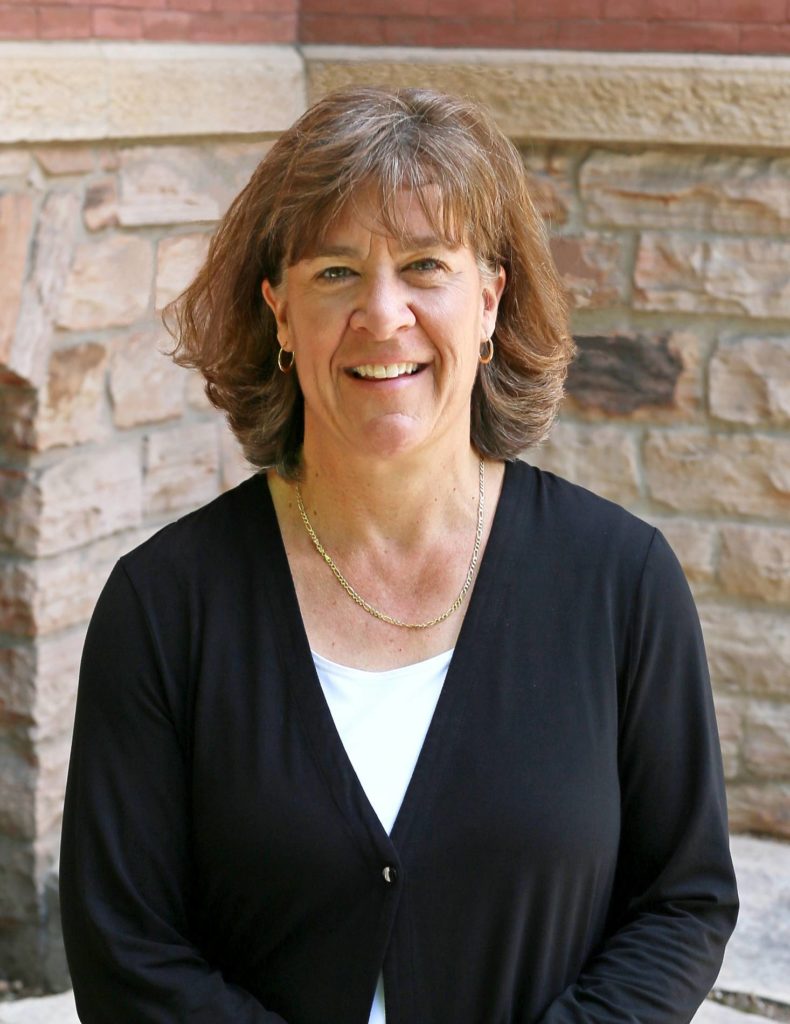Perspectives from the School of Public Health

Tracy Nelson is the director of the Colorado School of Public Health at CSU. She has been involved with the Colorado School of Public Health since 2006. She has a background in biobehavioral health as well as cardiovascular epidemiology. Her research has focused on genetic and environmental risk factors and chronic disease outcomes, most recently she has worked with communities to evaluate and improve interventions to decrease community-level chronic disease risk.
What’s interesting about public health is when it’s working efficiently you don’t know it’s there. We take for granted our clean water and air, that the food we eat, the parks our children play in, and our work environments, are safe, and importantly that infectious diseases are controlled through vaccination programs, proper hygiene, and vector control. When a public health problem overwhelms the system like in the coronavirus pandemic, public health becomes front and center, we realize the importance of this system built to prevent and protect ourselves and our communities.
The breadth of public health research on the CSU campus is vast and includes water, atmospheric sciences, climate, environmental epidemiology, occupational health, agriculture, food, nutrition, chronic disease, obesity, aging, cancer, and infectious diseases, to name a few. Given this wide array of public health work and our campus interest in interdisciplinary challenges that make an impact in our community, a public health research task force was convened in 2018 by the Office of the Vice President for Research to develop a strategic vision for CSU’s collective efforts in public health research. The task force was charged with inventorying this work as well as identifying strengths, opportunities, weakness and threats so that recommendations could be made to address gaps and build on strengths.
This breadth of activity and the task force work on research priorities enhanced our ability to act in providing timely assistance to the county by CSU faculty and students at the outbreak of this pandemic. The Colorado School of Public Health and multiple CSU faculty have taken an important lead within the state to respond to the COVID-19 pandemic. There are more than 70 CSU faculty with appointments in the Colorado School of Public Health. These faculty represent 25 departments within seven of CSU’s eight colleges.
One clear need in the response to the pandemic is assessment and analysis of the large amount of data that is generated. Dr. Jude Bayham, an assistant professor in the Department of Agricultural and Resource Economics and a public health faculty member, has been leading efforts at CSU in conducting analyses aimed at addressing the toll that long-term school closures may have on U.S. healthcare providers. This work is gaining international attention as school districts grapple with long-term school closures and the effects this could have on health care workers. Dr. Bayham also serves on Governor Polis’ COVID-19 Public Health Task Force.
Other work at CSU that addresses this public health crisis includes the efforts by Dr. John Volckens, who runs the Center for Energy Development and Health and is a faculty member of CSU’s school of public health, he leads a team that was tasked and supported by Governor Polis to test medical protective gear, serving as the state’s designated center for evaluating the safety and efficacy of such gear for hospital workers fighting the pandemic. Dr. Volckens is also co-leading an effort with Dr. Dan Goble, director of the School of Music, Theater, and Dance, to determine how the performing arts can return safely. They are considering how far airborne particles and droplets are projected by those playing wind and brass instruments, as well as among singers, actors and dancers. They hope to determine if steps can be taken to protect both performers and audience members from the risks of COVID-19.
Disease surveillance during the pandemic has been shown to be critically important for protecting communities from COVID-19. CSU faculty have been instrumental in executing high impact health surveillance work in support of our most vulnerable aging population. Work being conducted by Dr. Greg Ebel, director of the Arthropod-borne and Infectious Disease Laboratory (AIDL and Dr. Nicole Ehrhart, director of the Columbine Health Systems Center for Healthy Aging at the outset of the pandemic has shown the power of identifying and removing asymptomatic workers at senior and nursing care facilities who are carriers and could transmit the virus to this most vulnerable resident population. They have been so successful in identifying such individuals and helping to deter outbreaks among this vulnerable population that they were recently authorized by Governor Polis to continue this work on a much larger scale, considering over 25 more facilities. We have extended these studies to more extensive testing of both the senior care facility participants and University employees.
The demand for those trained in public health will dramatically accelerate as a result of the COVID-19 pandemic. Colorado is fortunate to have the Colorado School of Public Health (ColoradoSPH), a distinct institution that connects Colorado State University, the University of Colorado Anschutz Medical Campus, and the University of Northern Colorado. The ColoradoSPH will train the next generation of public health experts in epidemiology, statistical and health services research, health education, environmental health science, occupational health, health policy, health promotion, community health, and administration of public health programs. These are all key needs in a future of public health resilience to future infectious disease outbreaks.
As Director of the Colorado School of Public Health at CSU, I could not be prouder of the work we are accomplishing both as a school and a university to assist our local community and state during this public health crisis.